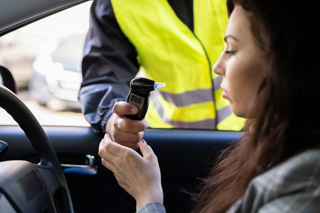Road safety charity, brake, has welcomed figures published on May 21, 2015 by the Ministry of Justice. The figures show more drivers convicted of killing are going to jail for longer.
The annual criminal justice statistics for 2014 show three in five drivers (sixty %) convicted of causing death in England and Wales receive immediate custodial sentences, up from just over half (fifty four %) in 2013. The average sentence length for these drivers is four years, up from three and a half years in 2013.
This change is in part due to increased use of the more serious causing death by dangerous driving charge compared with the lesser causing death by careless driving charge. Prosecutions for the former are up from one hundread and forty four in 2013 to one hundread and seventy six in 2014, while prosecutions for the latter are down from two hundread and thirty four in 2013 to two hundread and five in 2014. This reverses a decline in the use of the causing death by dangerous driving charge that had been ongoing since 2007. Brake has previously expressed concern that the lesser charge was being inappropriately used in many serious cases where deliberate and illegal risks were taken by drivers.
A comprehensive Ministry of Justice review of driving charges and penalties is ongoing. It is hoped this will deliver further improvements in achieving justice for victims of criminal driving and their families, and in showing that risky, illegal driving will not be tolerated.
The 2014 figures also show that prosecutions for all motoring offences are up 4.5%, mainly due to a twenty six % increase in speeding prosecutions. Other offences, including drink driving, careless driving and using a mobile phone while driving, have seen small decreases.
Julie Townsend, deputy chief executive of Brake, said: "Brake has long campaigned for better justice for bereaved and injured road crash victims and their families, who are often left feeling betrayed by the use of inappropriately-termed charges and lenient sentences. Drivers who have killed while taking illegal risks have too often been labelled ‘careless' in the eyes of the law, and given insultingly low sentences, when their actions can only be described as dangerous and destructive.
She added: "It is encouraging that we are starting to see this trend being reversed, with more offenders being appropriately charged with causing a death by dangerous driving, and receiving tougher sentences that better reflect the consequences of their actions. There is more work to be done, but this could be the start of a culture shift towards treating driving offences with the gravity they deserve; we are hopeful that the government's ongoing review will deliver further improvements."



















Login to comment
Comments
No comments have been made yet.